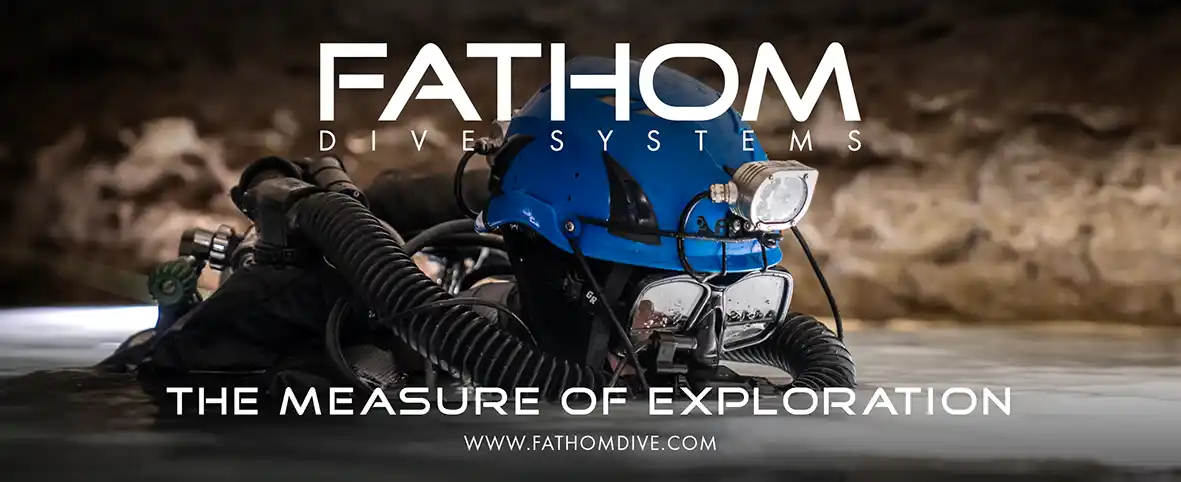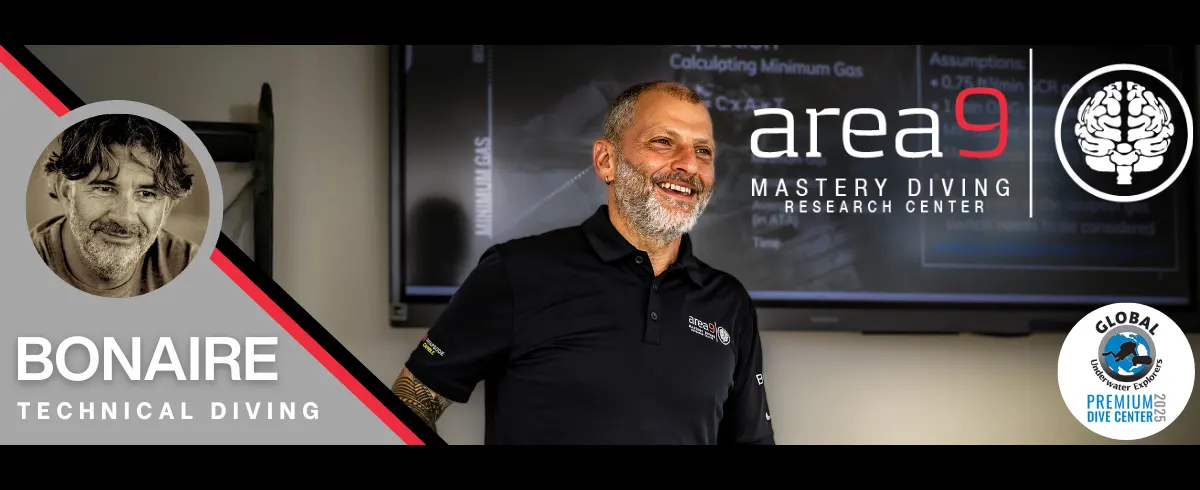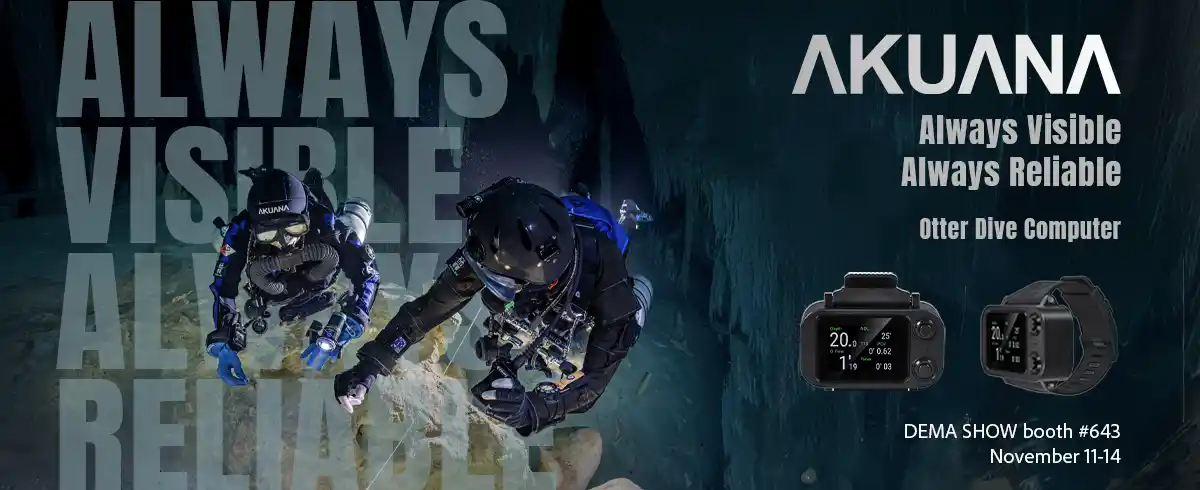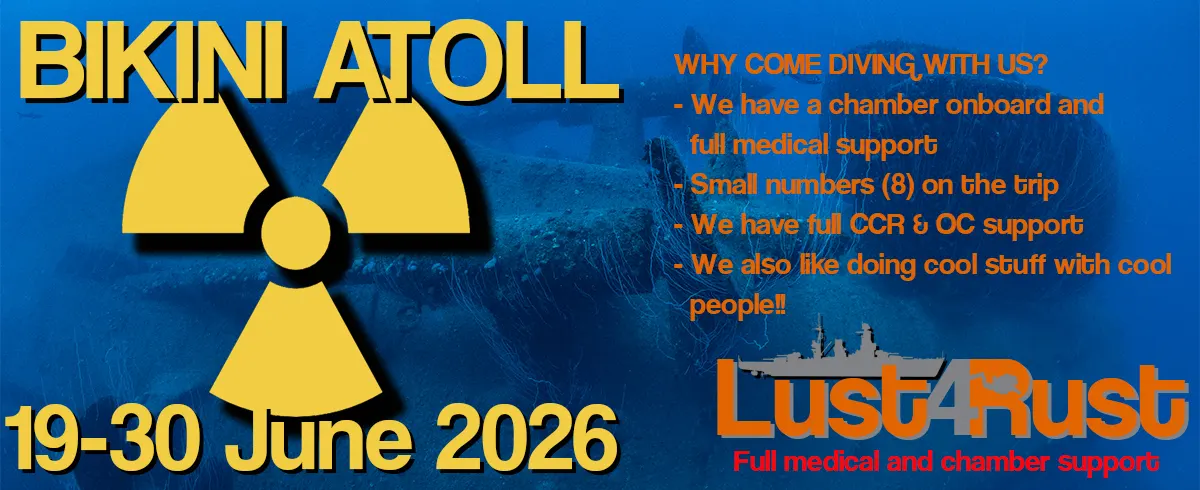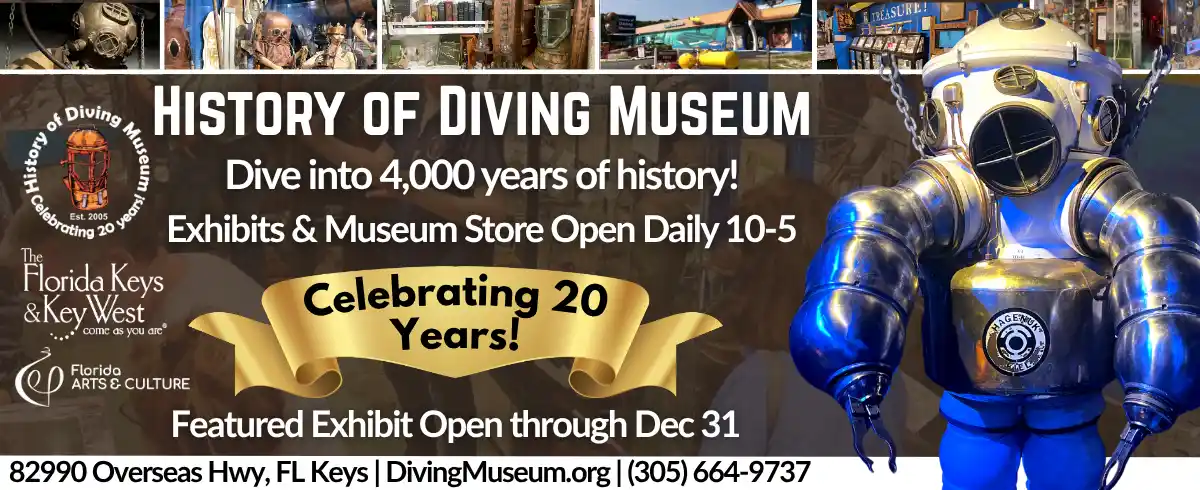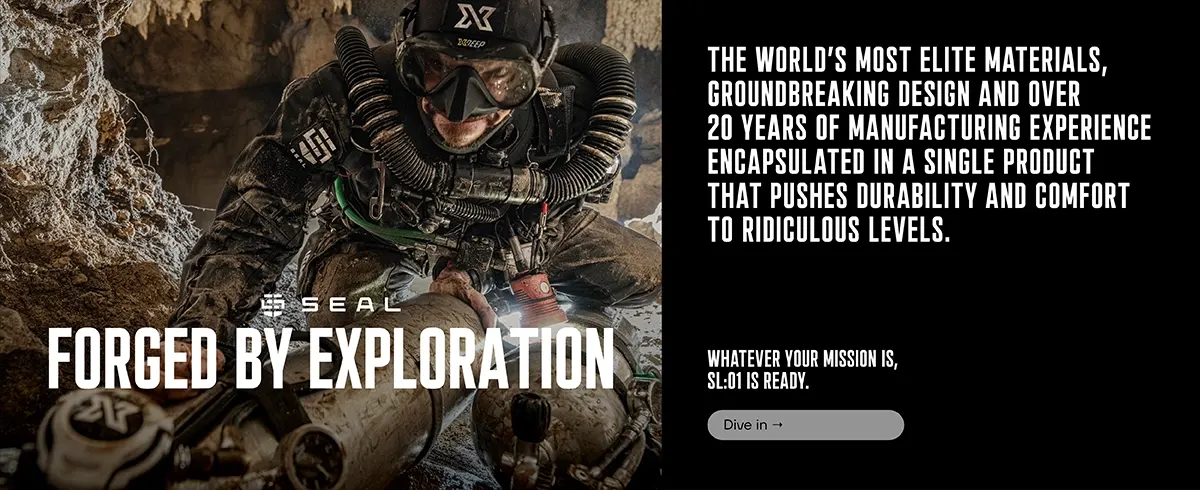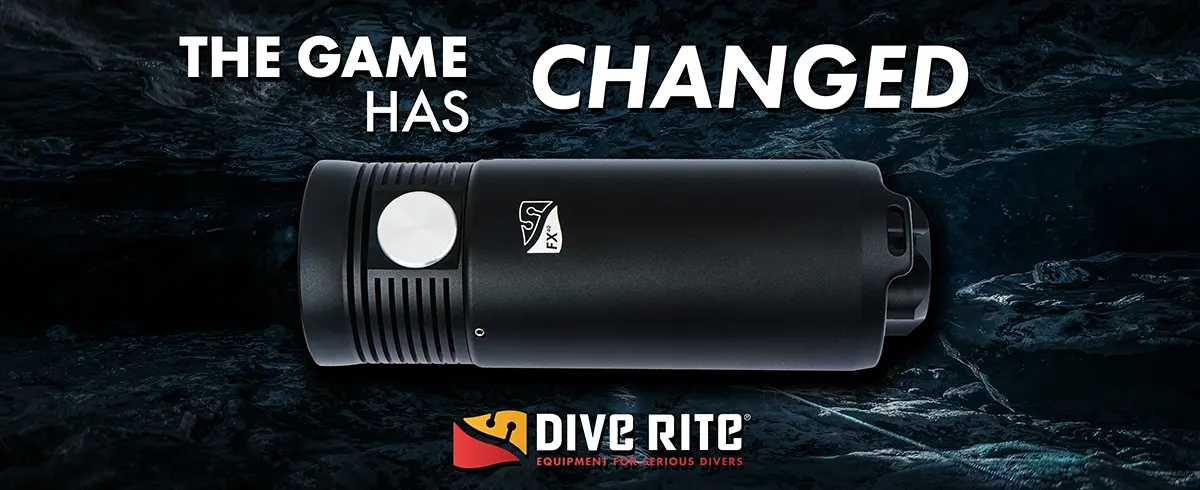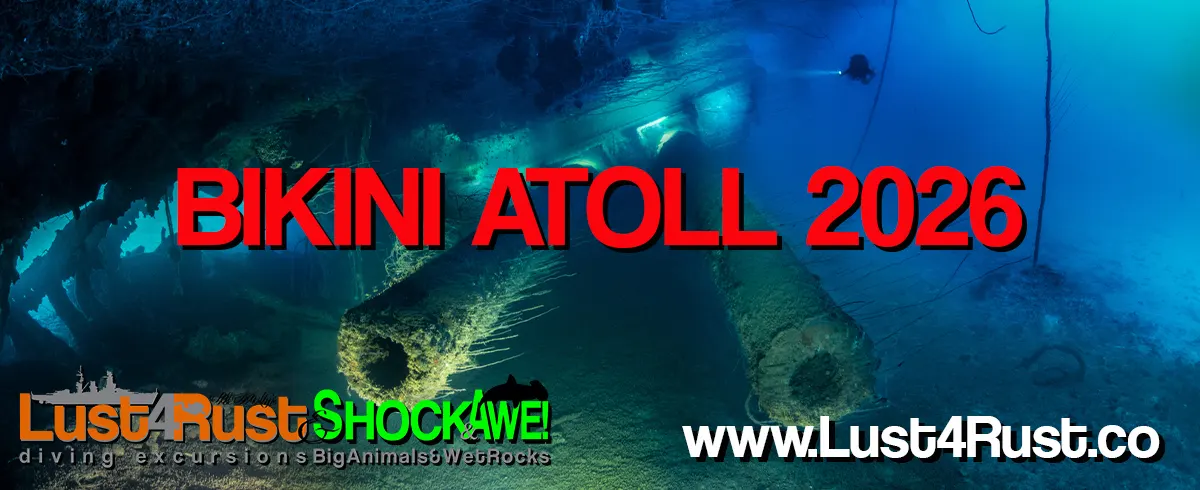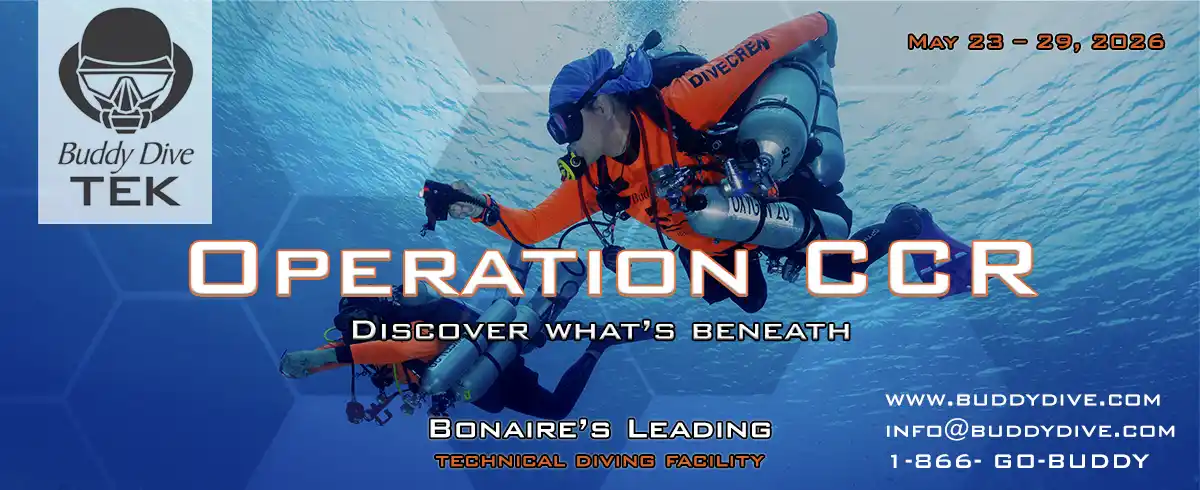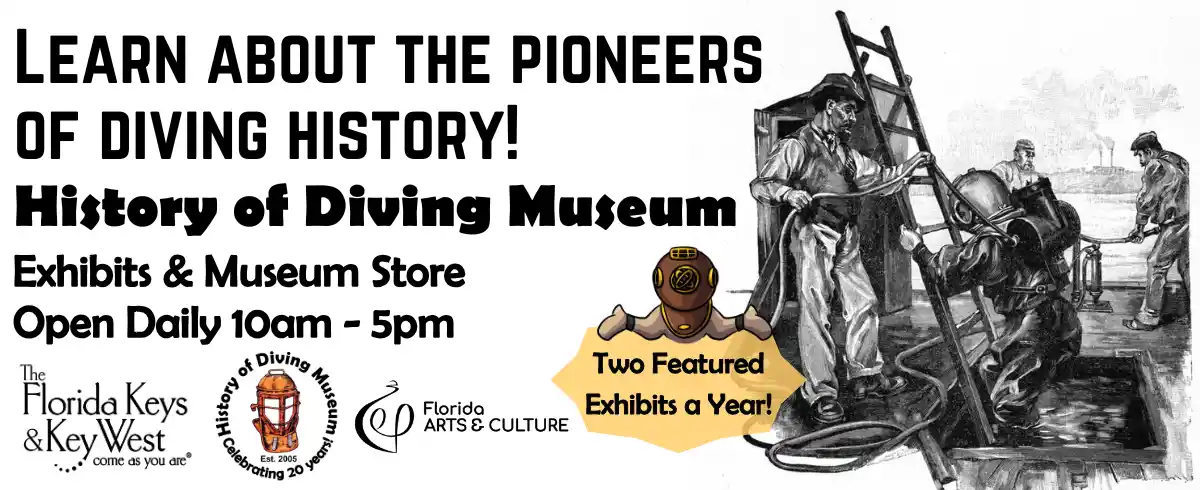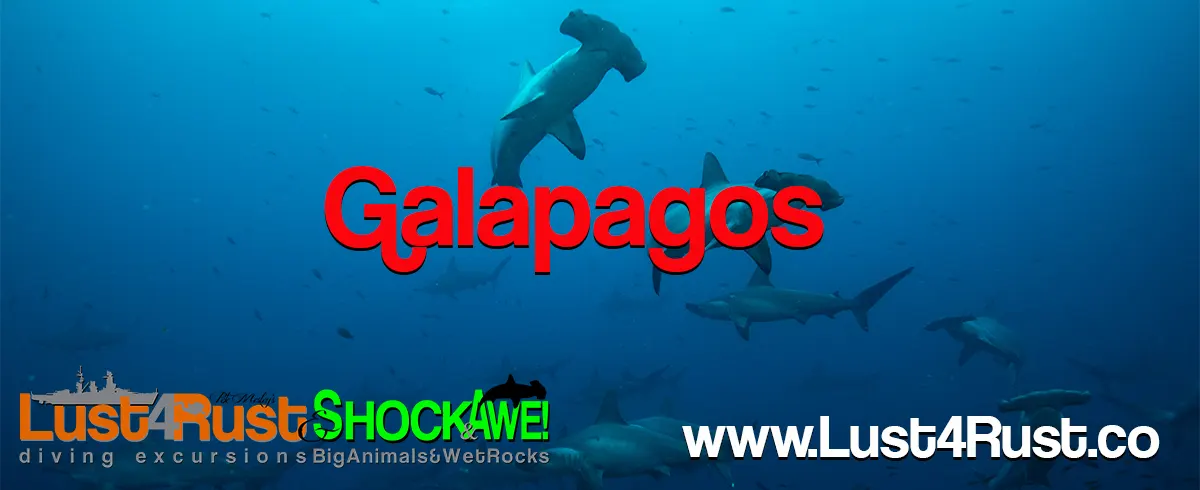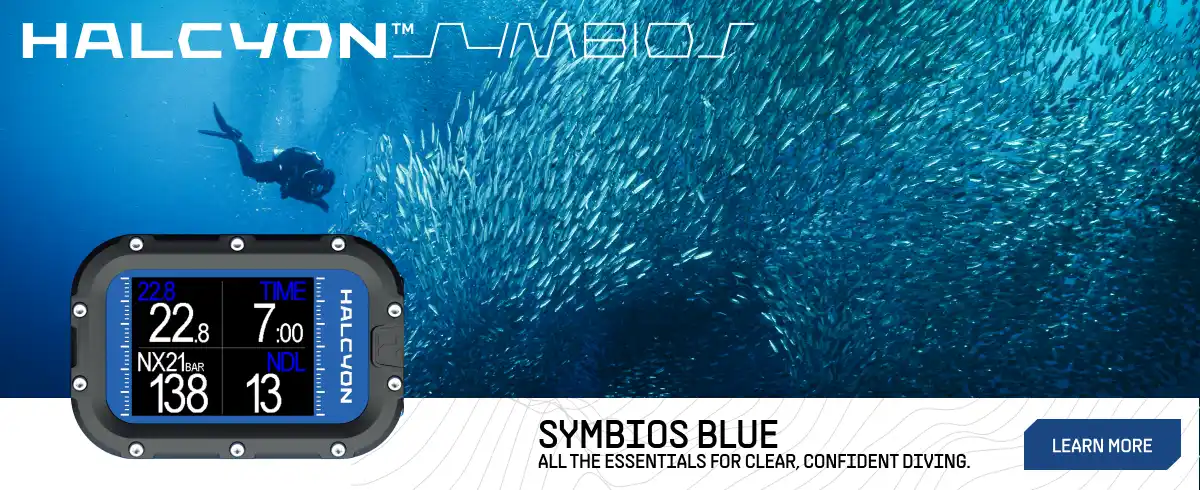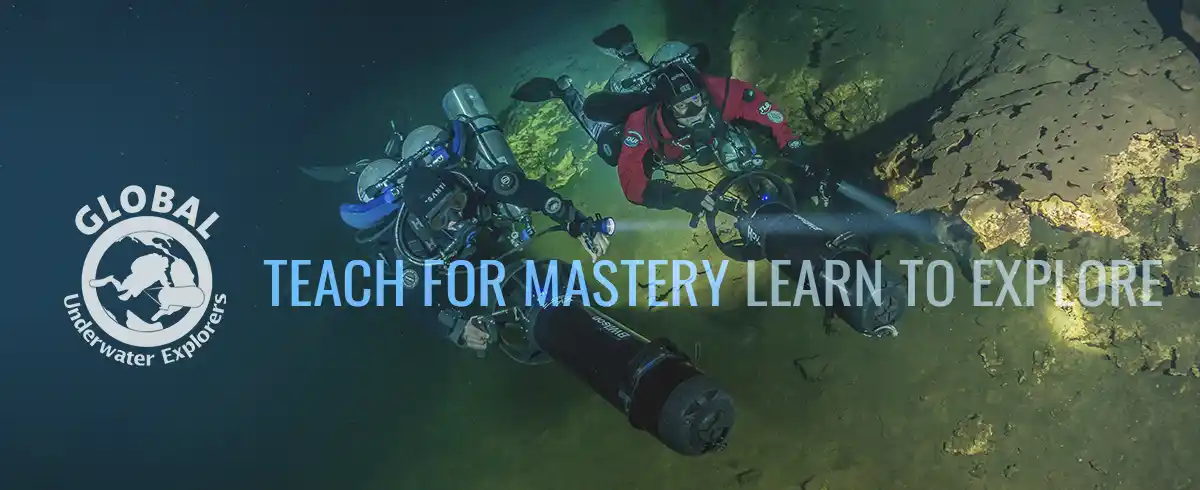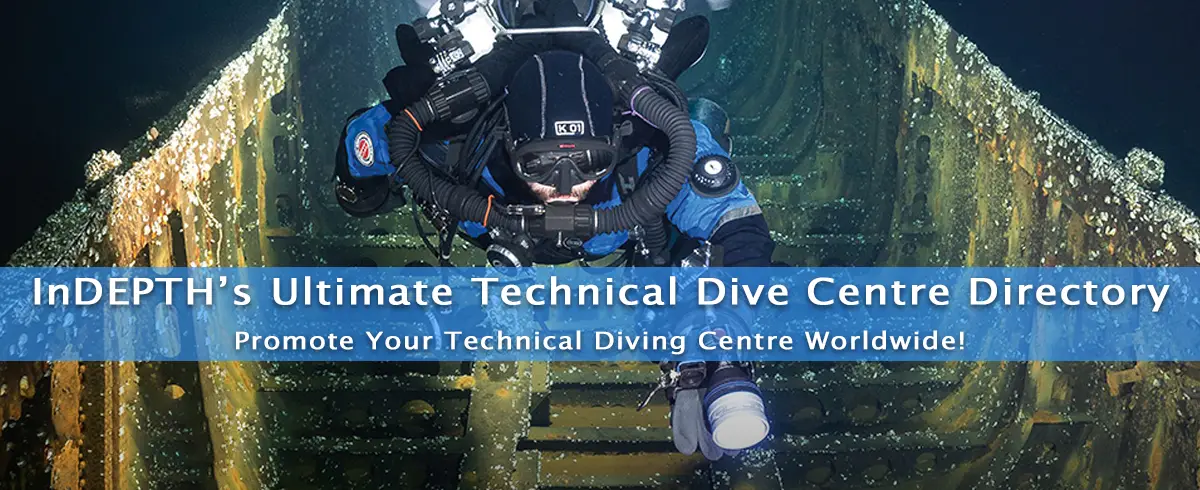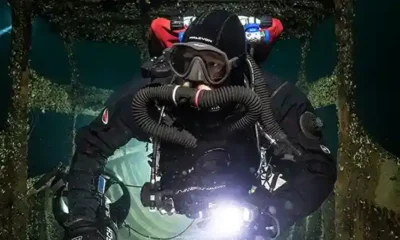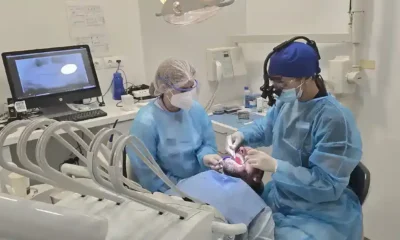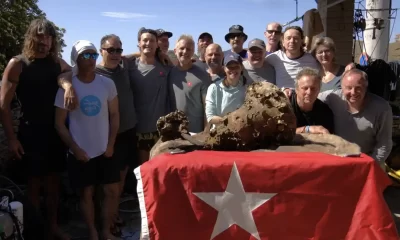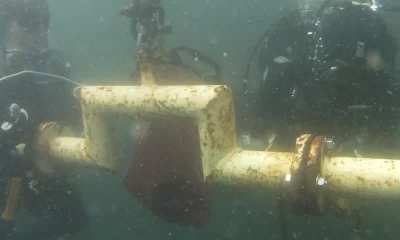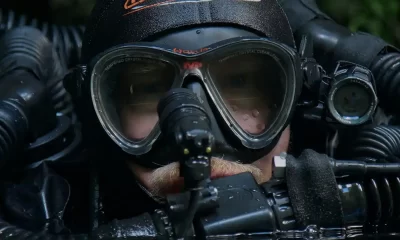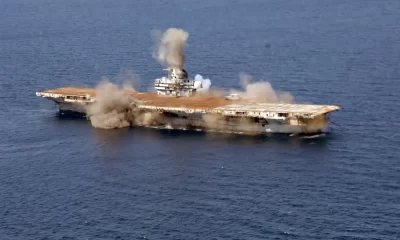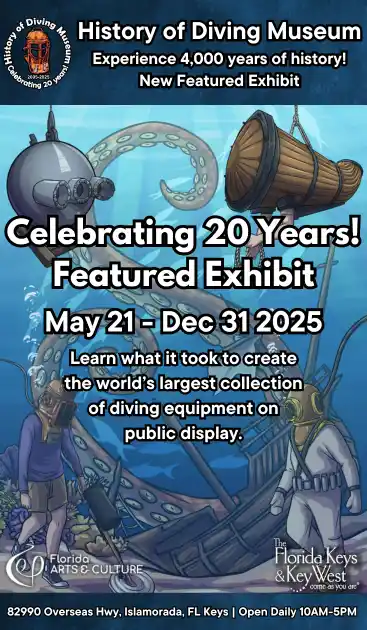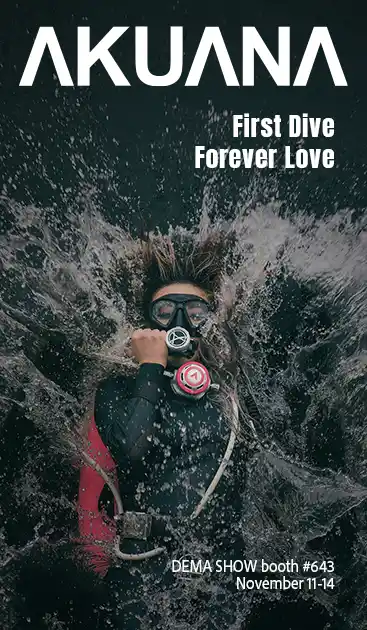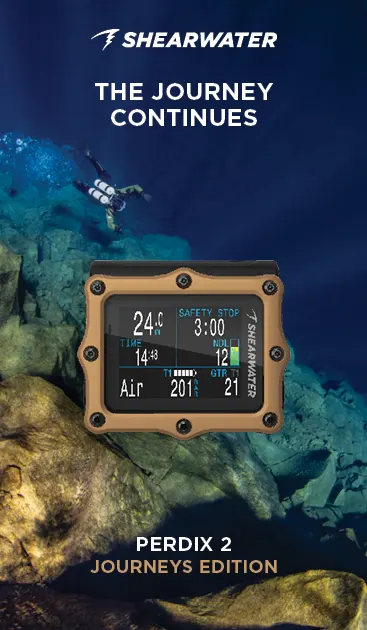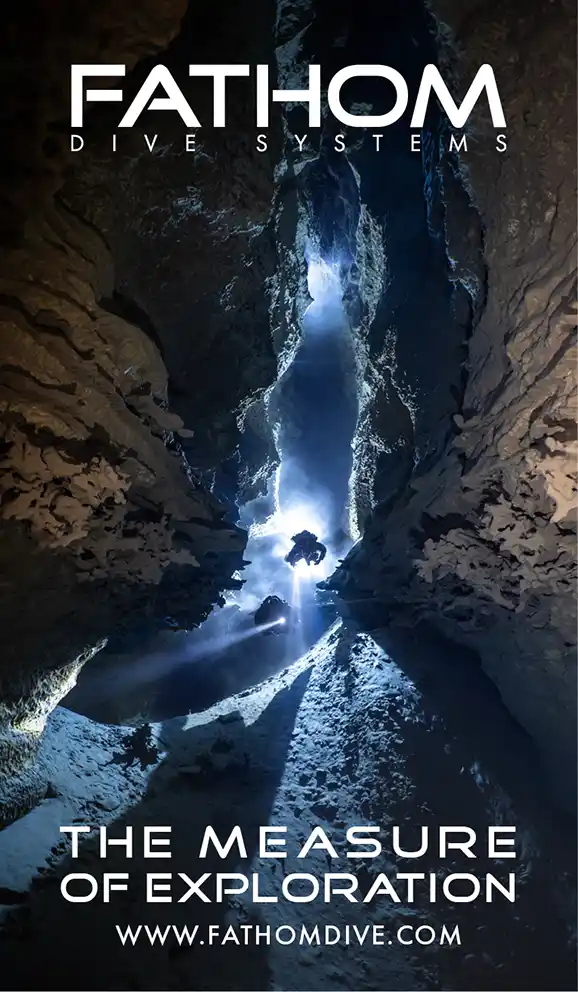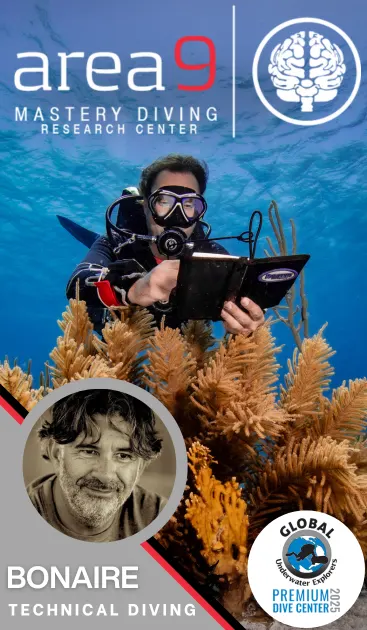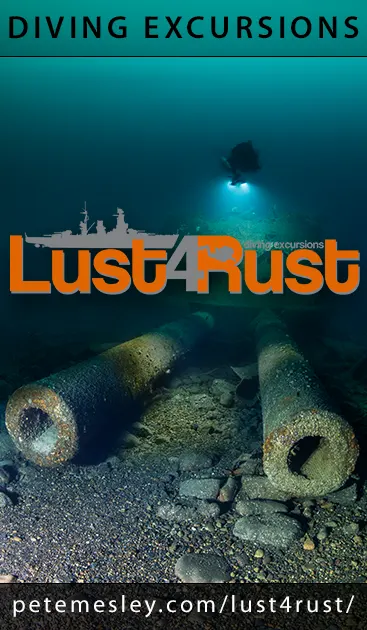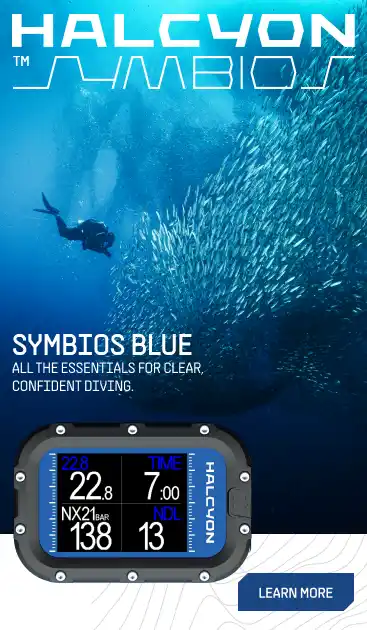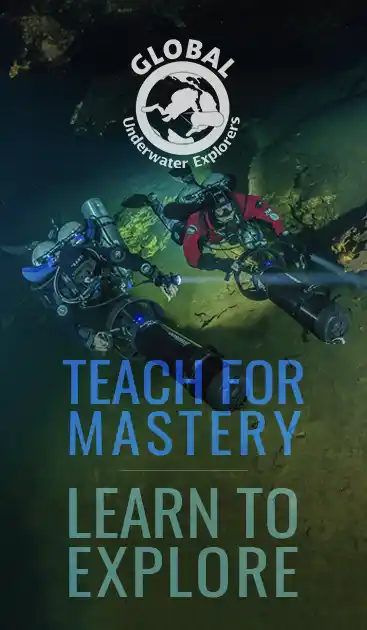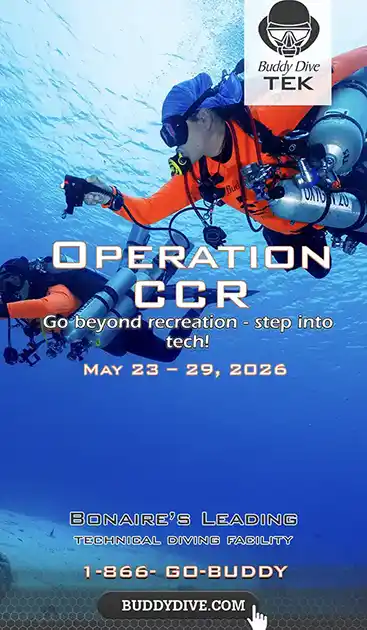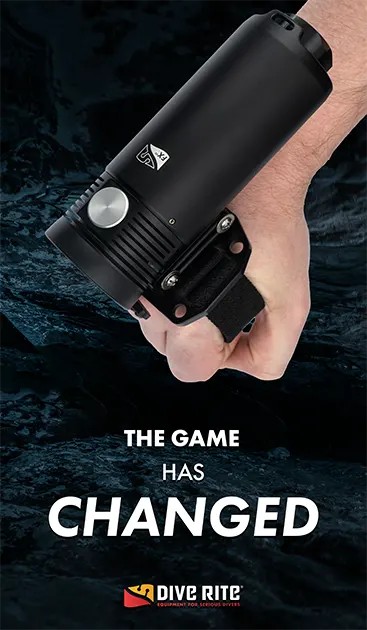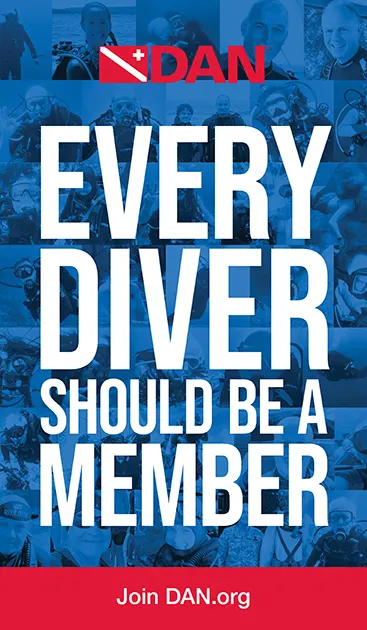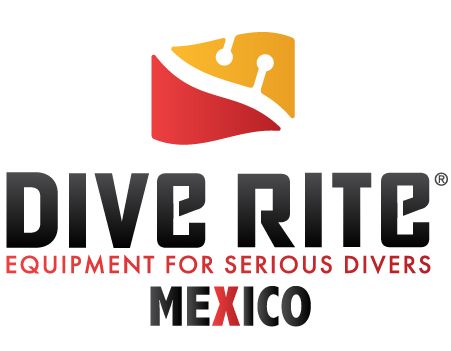Community
Why I Became a GUE Instructor
Jon Kieren had been an experienced tech diver and instructor for years when, curious, he took a Global Underwater Explorers’ Fundamentals class, a prerequisite to GUE’s technical and cave training. Soon, he didn’t just want to be a GUE diver. He wanted to be a GUE instructor. Kieren writes about the draw of GUE and why he started over with a new agency.
by Jon Kieren. Photos courtesy of SJ Alice Bennett.

I’ve had the pleasure of working in pretty much every aspect of the diving industry over the past 15 years or so. I’ve been an instructor and boat captain in the Caribbean, worked in the training department of a large training agency, served as a consultant for equipment manufacturers, and traveled all over the world teaching as a full-time cave and technical instructor trainer. Many would have said I’d reached the highest levels in the diving industry.
So when I decided to start all over from scratch to become a Global Underwater Explorers (GUE) instructor, many of my friends, peers, and students scratched their head a bit and wondered why I would want to invest so much time, energy, and money to teach things I had been capable of teaching for years with other agencies. The answer was I wanted to commit to excellence. “Can’t you do that by teaching for other agencies?” they would ask. Not really.
Over the years, I had become quite frustrated with almost every aspect of the dive industry. Low-quality instruction, lack of accountability from agencies in accidents and quality assurance, manufacturers releasing equipment that created more problems than it solved, and dive shops and instructors at all levels racing to the bottom in terms of quality — all of it was making my blood boil. When I “saw the light,” it was refreshing, inspirational, and a huge relief. I finally found an answer to many of the issues I had been banging my head against the wall trying to solve for years. Here’s how it went down.

In 2016, I left my job in the training department of a large agency after five years of frustration. I realized I could make a larger impact on the industry working with one or two students or instructor candidates at a time. I moved from south Florida to north Florida’s “cave country” to teach full-time as an independent instructor. It was a bit scary to not have a guaranteed paycheck, but I was determined to make it work. I was hungry to improve as an instructor and knew I could do better. The problem was, after working at the highest levels with some of the biggest names in the industry, I didn’t really know where to turn.
Enter Mark Messersmith. He’s a GUE board director, instructor evaluator, chief operating officer of dive equipment manufacturer Halcyon, and one of the nicest guys around. I had gotten to know Mark a little bit over the years, and always appreciated his laidback and super supportive demeanor. When I approached him about GUE training, he asked, “Why?” Knowing my background, of course he knew the answer, but I think he wanted to hear it from me.
Fundamentals: Where the Fog First Lifted
I first started down the technical diving path when I was working in the Caribbean as an open water instructor and boat captain, and I came across GUE in my research. I was immediately put off by the standardization and team-diving philosophy, and decided other agencies would be a better fit for me. Of course I didn’t know what I didn’t know, but my thought was, “There can’t be just one way to do EVERYTHING.” Plus, I really enjoyed solo diving at the time. After moving through the ranks over the years and working with hundreds of technical, rebreather, and cave students, I had the opportunity to work with several GUE-trained divers. Most of them had only taken Fundamentals, the prerequisite to GUE’s technical and cave training courses, but two things were consistent with all of those students: The classes were easier to teach, and they were way more fun. We would be able to start cave or tech diving straight out of the gate and not need to spend three or four days on basic skills. I wanted to know what GUE’s secret was to create such solid and consistent divers, and that’s when I approached Mark.

To answer his question, I was honest and told him I wanted to steal as much as I could from the Fundamentals course to incorporate into my classes. He just smiled through his mustache and said, “OK.” We scheduled a class, and I got to work watching all of the skills videos and practicing on my own in order to prepare. To say that I was nervous when class started was an understatement. I think I hid it pretty well, but what if I didn’t meet the highest standard for Fundamentals and get GUE’s coveted tech pass? What would that say about me as an instructor? Mark’s casual style put me at ease as we began, and I was able to focus. When Mark got to the third slide of the first lecture, it was like the fog had lifted and I could see everything clearly for the first time. I knew the trajectory of my career had just shifted and I’d be starting all over. “This is going to be expensive,” I thought.
So what’s on that slide? A simple statement that was the answer to all of my struggles: “End the disconnect between training and passion.” As Mark explained the issues in the dive industry, of which I was all too aware, he also explained how GUE addresses those issues. From the top down, GUE’s board of directors members and instructors are passionate divers and explorers, no exceptions. This changed everything for me. One of my biggest frustrations was recognizing that at the very top of the industry (senior managers of the agencies), almost nobody was an active diver. Presidents and VPs were diving once a year for social media posts to create an illusion they were still active and passionate—many of them with very limited teaching experience and making decisions on standards at the highest levels of technical, cave, and rebreather training when they had only been in a cave once or dove a semi-closed rebreather a couple of times back in the 90s.
This lack of passion filters down through the industry. It’s amazing how many instructors (technical, cave and rebreather included) refuse to get in the water if they aren’t being paid. Even with my limited experience at the time, when I went to work for the agency, I would have my head in my hands thinking, “You have no idea what you’re talking about,” when sitting in on big meetings as industry heads for all of the agencies were in my opinion focused more on how to keep standards low and profits high rather than on safety and quality.
A Commitment to Excellence
But now, staring at this slide, we discussed the ways GUE is focused on keeping quality at the highest level and inspiring divers to be passionate, competent, and capable of incredible conservation and exploration efforts. We discussed the global GUE community and all of the remarkable things they accomplish. It was so clearly the answer to everything.
I didn’t just want to be a Fundamentals diver. I wanted to be a GUE instructor. As I started on the path, I started to really realize why “Commit to Excellence” is printed on the back of our t-shirts. I was pushed harder than I had ever been in the past, with support and encouragement. The goal was always to improve, no matter what we were doing: from parking our cars at the dive sites to be courteous and leave room for others, to maintaining perfect stability in extremely task-loading situations, and developing the best instructional and evaluation techniques. There was never a time in any of my classes where I was told, “Good job.” It was always, “Good job, but here’s how we can make it better.”

My Tech 1 (and later Tech 2) instructor, Guy Shockey, made a statement that I remember every day. He explained that he chooses to be a GUE instructor because when he wakes up in the morning and gets ready to teach a class, he knows without a doubt that he has the capacity and resources to teach the best class available. So when I’m on my way to the shop or dive site to meet my students in the morning, I keep that in the back of my mind. I have the capacity and resources to teach the best class available. It not only gives me confidence, but keeps me honest. There are no excuses and no room for shortcuts. Commit to excellence.
We are held to that standard of excellence through several mechanisms. We have strict annual renewal requirements to ensure we are actively diving and exploring so that students are learning from someone still passionate about what they are teaching. These requirements go far beyond what is typical in the industry, and we are actually monitored for meeting them.
Staying Current (And Competent)
Most agencies have some form of “currency” recommendation, meaning you’re supposed to teach or assist a class every few years. However, there’s no oversight to ensure instructors are meeting this requirement. There’s loads of instructors out there (tech instructors and instructor trainers included) who haven’t taught a class in five-plus years. There’s nothing stopping these instructors from going out and teaching a class at their highest level. Sure, if something terrible happens, the agency and insurance company will likely drop the instructor, showing that they violated a standard by not remaining current. But at that point, it’s already too late. Students pay the price. Even if there isn’t an accident in training, it’s very likely that students will not have received adequate training and will be more at risk in their post-training diving activities.
GUE instructors need to show dive logs verifying we have conducted at least 25 non-training dives each year, half of which need to be at or above their highest teaching level. This ensures that when you sign up for a GUE class, you can be sure the instructor in front of you is still active, current, and passionate about what they are teaching you.
All GUE instructors, instructor trainers, and instructor examiners are required to be re-evaluated at their highest teaching level every four years. Nobody is exempt from this rule, as it means that we are consistently ensuring everyone is teaching the same things, to the same standards, without drift.
Scuba diving is a physically taxing activity, and the more aggressive the dive, the more physically fit the diver should be. Even on fairly benign dives, you never know when the current or seas might pick up, or when a failure could result in extended decompression times. We believe that having physical fitness requirements that are consistent with diving goals is extremely important. No smoking allowed for any GUE diver or instructor, and we require swim tests at every level of training.

Instructors have to meet pretty stringent fitness requirements each year. We have to be medically evaluated for fitness to dive, maintain a low Body Mass Index (BMI), conduct timed swims and diver tows, stair climbs and equipment carries over long distances, all of which verify our ability to assist our students in emergencies. This is surprisingly absent from other agency’s renewal requirements. There are lines in the renewal agreement about being fit to dive, but there’s no oversight, and they don’t even require a medical exam.
We also have a 100% quality assurance process, meaning every student completes a quality control form. This is not only so our QC director can identify any drift from the standards or issues with our conduct in class, but also to help provide feedback on how we can improve the training we offer. We encourage our students not to just tell us what we did well, but treat us how we treat them in the debriefings and include areas we can better support their growth, because there’s always some room for improvement.
I don’t mention all of the renewal requirements as a flex, but rather to show that it takes a significant investment for GUE instructors to remain in current teaching status. Someone who isn’t committed simply won’t remain current. It was a huge draw for me, as I had seen how the minimal standards typical in the dive industry contribute to the disconnect.
For me, as an instructor, the benefits of GUE go beyond the high-quality training, standardization, and community. The opportunity to work toward ending the disconnect between training and passion as well as the continuous commitment to excellence are what keep me motivated. Not a year has gone by since my Fundamentals course that I haven’t seen significant growth as an instructor, and I don’t see that changing until I hang up my fins.
DIVE DEEPER
InDEPTH: The Economics of Being a Tech Diving Instructor by Darcy Kieran
Other stories by Jon Kieren:
InDEPTH: I Trained “Doc Deep” by Jon Kieren
InDEPTH: SUMP POTION #9 by Jon Kieren
InDEPTH: Grokking The FATHOM CCR: My Dive into the Nuts & Bolts with the Inventor by Jon Kieren

Jon Kieren is a cave, technical, and CCR instructor/instructor trainer who has dedicated his 13-year career to improving dive training. As an active TDI, IANTD, NSS-CDS, and GUE Instructor and former training director and training advisory panel member for TDI, he has vast experience working with divers and instructors at all levels, but his main professional focus resides in the caves. In his own personal diving, Jon’s true passions are deep, extended range cave dives, as well as working with photographers to bring back images of his favorite places to share with the world.

